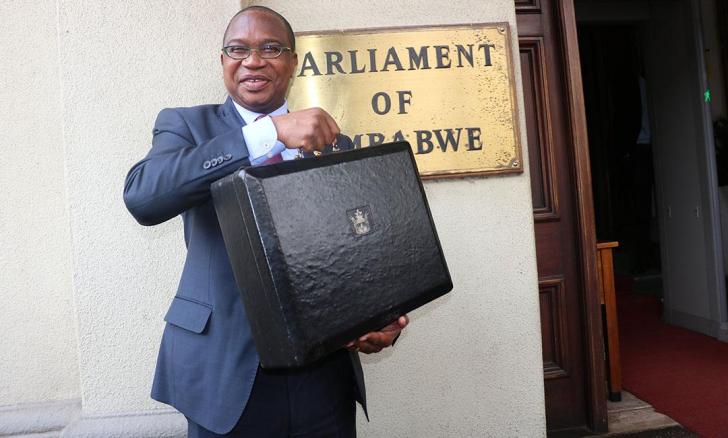News / National
Parliament to debate Mid-Term Budget Review statement
2 hrs ago | Views

The debate on the Mid-Term Budget Review presented by Finance, Economic Development and Investment Promotion Minister, Professor Mthuli Ncube, is expected to commence today as Parliament resumes sitting following the Heroes Day and Defence Forces Day commemorations.
Prof Ncube delivered the review statement on July 31 in the National Assembly, with the debate adjourned for continuation today.
In his address, the Treasury chief highlighted the need to review levies and licences, responding to calls from industry leaders for the Executive to streamline statutory obligations and regulatory frameworks to ease the operational burden on businesses.
Prof Ncube also reported that the economy remains on track to achieve the targeted 6 percent growth, following a slowdown from 5 percent to 1,7 percent last year due to the El Niño-induced drought. Fiscal revenue and expenditure performed in line with projections during the first half of 2025.
Acknowledging business constraints raised by analysts, taxpayers, and business associations, Prof Ncube outlined plans to review the taxation framework without compromising fiscal sustainability.
"In recognition of the concerns raised by taxpayers and business representative organisations such as the Chamber of Mines, Confederation of Zimbabwe Industries and Zimbabwe National Chamber of Commerce, Government will continue to review the existing tax system with a view to reducing reported and observed distortions," he said.
The reforms are aimed at creating a conducive business environment, attracting both domestic and foreign investment, fostering innovation, and promoting sustainable economic growth by streamlining regulations, reducing compliance costs, and eliminating bureaucratic inefficiencies.
"In practical terms, the second half of 2025 will see the Government seized with implementation of the business reforms, from cutting licensing fees to digitising application processes," Prof Ncube said.
"Zimbabwe's leaders intend to reduce the operational cost of the domestic industry to enable it to compete both domestically and internationally. Investment and compliance with tax legislation are critical for a sustainable domestic resource mobilisation framework."
The upcoming parliamentary debate is expected to provide further insight into how these reforms will be implemented and their potential impact on the country's economic trajectory.
Prof Ncube delivered the review statement on July 31 in the National Assembly, with the debate adjourned for continuation today.
In his address, the Treasury chief highlighted the need to review levies and licences, responding to calls from industry leaders for the Executive to streamline statutory obligations and regulatory frameworks to ease the operational burden on businesses.
Prof Ncube also reported that the economy remains on track to achieve the targeted 6 percent growth, following a slowdown from 5 percent to 1,7 percent last year due to the El Niño-induced drought. Fiscal revenue and expenditure performed in line with projections during the first half of 2025.
"In recognition of the concerns raised by taxpayers and business representative organisations such as the Chamber of Mines, Confederation of Zimbabwe Industries and Zimbabwe National Chamber of Commerce, Government will continue to review the existing tax system with a view to reducing reported and observed distortions," he said.
The reforms are aimed at creating a conducive business environment, attracting both domestic and foreign investment, fostering innovation, and promoting sustainable economic growth by streamlining regulations, reducing compliance costs, and eliminating bureaucratic inefficiencies.
"In practical terms, the second half of 2025 will see the Government seized with implementation of the business reforms, from cutting licensing fees to digitising application processes," Prof Ncube said.
"Zimbabwe's leaders intend to reduce the operational cost of the domestic industry to enable it to compete both domestically and internationally. Investment and compliance with tax legislation are critical for a sustainable domestic resource mobilisation framework."
The upcoming parliamentary debate is expected to provide further insight into how these reforms will be implemented and their potential impact on the country's economic trajectory.
Source - The Herald






































